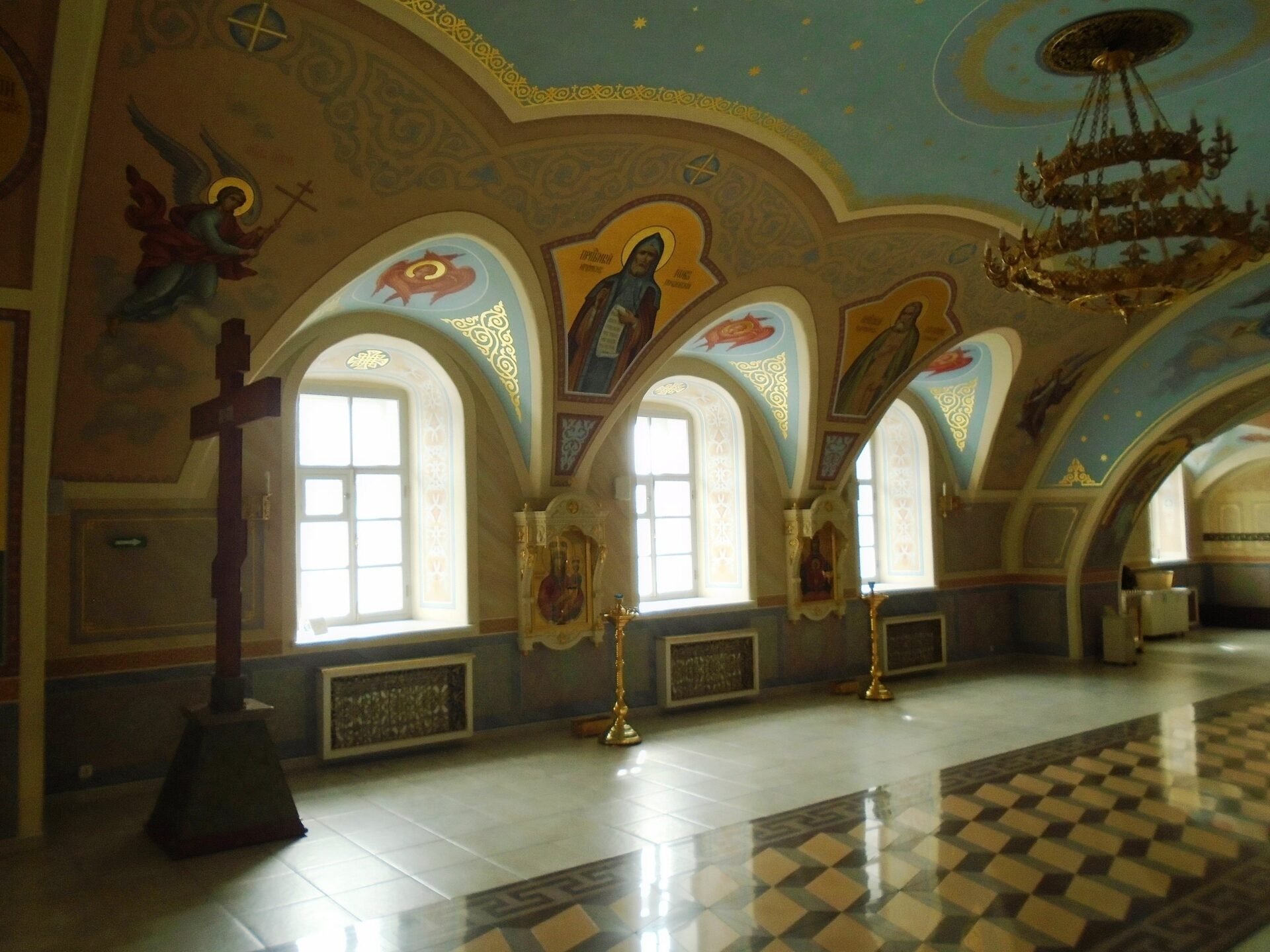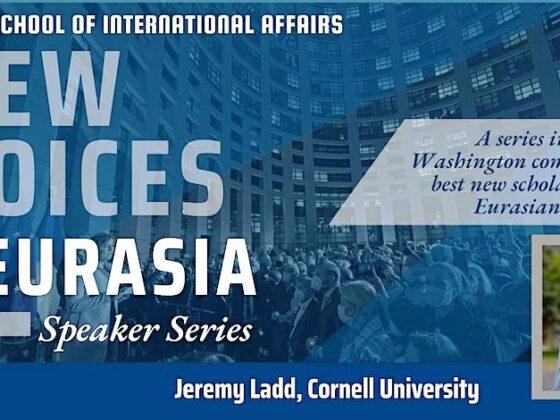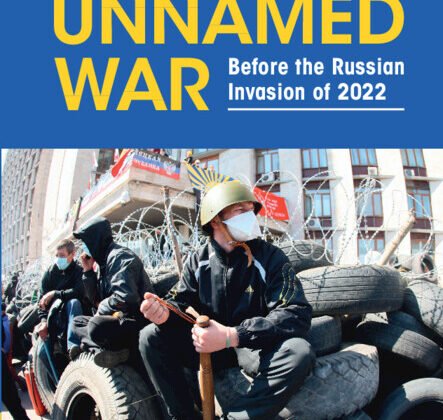Since Russia’s invasion of Ukraine, President Vladimir Putin and regime supporters frequently reference the need to defend Russia’s cultural and spiritual existence. Putin has portrayed this conflict in holy war terms, placing Russia’s traditional spiritual and moral values at war with the “degenerate” values of the West. For example, in his recent address to the Federal Assembly, Putin chastised the Anglican Church for considering moving toward a gender-neutral god, quoting Jesus, saying, “Father, forgive them, for they know not what they do.” He then went on to say that Russia would protect its children from Western “degradation and degeneration.” Putin has intensified this rhetorical war and its institutionalization through new laws and executive orders over the years, working to consolidate a particular set of Russian values that helps consolidate his own power and to justify Russia’s actual war in Ukraine. Based on research in six of Russia’s regions, there seems to be fertile ground for this consolidation of conservative values to work. However, not all regions are similarly predisposed to conservative and anti-Western values, which could decrease this strategy’s effectiveness.
Values in Russian Policy and Law
Highlighting, legislating, and mobilizing traditional spiritual-moral values is an increasingly prominent component of Russia’s domestic politics. These conservative values emphasize traditional family roles, the importance of religion, and the need for patriotism and unity in support of the Russian homeland. We can see this in a series of policy changes that have taken place, particularly since Putin’s return to the presidency in 2012. In 2013, Russia passed a law against offending religious believers and another law prohibiting the spread of “propaganda of nontraditional sexual relations” to children. At the end of 2022, this law was strengthened to prohibit such “propaganda” to adults as well, working to remove positive images of same-sex relationships from Russian society. Amendments to Russia’s Constitution in 2020 further solidified these values by defining marriage as a union between a man and a woman, incorporating “faith in God,” and noting that the state “honors the memory of the defenders of the Fatherland and ensures the protection of historical truth.” In 2021, the new National Security Strategy securitized these values and Russian culture, justifying protective action in their name as necessary for national security.
Recently, an additional policy has clarified further exactly what these values are and what is necessary for their support. On November 9, 2022, Putin signed an executive order, “On Approving the Fundamentals of State Policy for the Preservation and Strengthening of Traditional Russian Spiritual and Moral Values.” This order identifies Russia’s traditional values: “life, dignity, the rights of human freedom, patriotism, citizenship, service to the Fatherland, responsibility for its destiny, high moral ideals, a strong family, creative work, the priority of the spiritual over the material, humanism, mercy, justice, collectivism, mutual assistance, mutual respect, historical memory and continuity of generations, the unity of the peoples of Russia.” While the order does recognize Russia’s multinational and multiconfessional people, it grants Orthodoxy a “special role in the formation and strengthening of traditional values” and emphasizes the need for “defense and support of the Russian language as the language of the state-forming people.” This order reiterates much of what had already been inscribed in the Constitution and laws regarding Russia’s values and the state and people’s duty to protect them.
To begin implementing this new order, the Duma Committee for the Development of Civil Society established the Cultural Front of Russia. This new public movement is intended to unite Russia’s cultural figures “who understand the need for prioritizing traditional spiritual and moral values in culture” and to mobilize them in support of these values identified in the order. Since then, regions of Russia, such as Murmansk, have started establishing their own branches of the Cultural Front to implement the executive order.
Public Values
For this consolidation of values to effectively generate support for Putin or at least limit opposition, the values themselves need to align with those held by people across the country. Public opinion data from the Levada Center shows that there is a broad base of support for conservative social values, such as negative attitudes toward same-sex relationships and negative attitudes toward the West. Using 2021 LegitRus survey data, Henry Hale finds similar uniformity in attitudes toward LGBTQ+-related issues, but less agreement on gender values and religion’s role in society. Taking a more fine-grained approach shows how well these values may play in different regions of Russia. In the summer of 2016, I commissioned a survey through the Levada Center in six regions of Russia, three ethnic republics (Karelia, Tatarstan, and Buryatia) and three neighboring regions (Murmansk, Samara, and Irkutsk), receiving 1,406 responses. Here I examine questions that indicate the extent to which people in different regions may be receptive to Putin’s consolidation of Russian values around conservatism, religion, and anti-Westernism.
One relevant question asked respondents in which spheres of public life the government plays an important role (see Table 1). From a list of options, “preservation of history and memory” received the highest number of affirmative responses at 91 percent, well above the percent who said the government plays an important role in infrastructure at 77 percent. This result indicates that people across the board do expect the government to be engaged in this preservation work, which is a key component of Putin’s values legislation and rhetoric.
There are also significant regional differences when it comes to the role of government in supporting the music, art, and literature of Russia, with the three ethnic republics identifying this sphere to a higher degree than the non-ethnic regions. This result may indicate a view that the government should support regional and ethnic cultures, not just Russian ones, in alignment with the historical justification for delineating ethnic republics. Government involvement in religion was named as an important sphere most frequently in Tatarstan, a Muslim-majority region, and for those who would vote for United Russia versus those who would vote for an opposition party, not vote at all, or are unsure. This variation suggests that preserving spiritual values will likely play well to Putin’s base, in addition to Tatarstan, to the extent that Orthodoxy is not overemphasized.
Table 1. Role of Government
| In your opinion, in which of the following spheres of public life, does the government play an important role? | Responding Yes (%) |
| Preservation of history and memory | 91% |
| Education | 87% |
| Support of the family, motherhood, fatherhood, and childhood | 85% |
| Support of pensioners | 82% |
| Healthcare | 81% |
| Preservation of the languages of the peoples of Russia | 79% |
| Support of the music, art, and literature of Russia*** | 77% |
| Infrastructure*** | 77% |
| Support of religious development*** | 67% |
Another question asked respondents which groups of people they would not want as their neighbors (see Table 2). Here, the homophobic attitudes match what we see in cross-national surveys, with respondents not wanting “homosexuals” as neighbors at about the same level as drug users and alcoholics. This view does not vary significantly among people who would vote for United Russia versus those who would vote for an opposition party, not vote at all, or are unsure. It also does not vary significantly among different ethnic groups, unlike what Kyle Marquardt found regarding support for Putin and Russia’s invasion of Ukraine in Tatarstan and Buryatia. With this view holding across the political spectrum and ethnicities, Putin’s values consolidation is more likely to be well-received.
However, disaggregating the responses regionally does uncover significant variation. Tatarstan, Karelia, and Irkutsk respondents named “homosexuals” less often than the other regions did, though still slightly over 50 percent of the time, and that same pattern holds when it comes to drug users and alcoholics. Those in Tatarstan and Karelia were also more receptive to having immigrants as a neighbor. While across these groups, Tatarstan’s respondents were more open on average, they did have the highest number saying they would not want someone from a different religion as a neighbor (40.3 percent), indicating a limit on greater tolerance. Interestingly, however, some of this negative orientation was driven less by the majority Orthodox and Muslim respondents, but by those who practice religion and report they are nondenominational, agnostic, or atheist. Regions more open to having people from the LGBTQ+ community and immigrants as neighbors may be less responsive to values rhetoric that attacks the West for its liberal views of sexual identities.[1]
Table 2. Neighbors
| Now I will name a few groups of people. Are there any among them you would not want to see as your neighbors? | Responding Yes (%) |
| Drug users*** | 69% |
| Alcoholics*** | 69% |
| Homosexuals*** | 62% |
| Immigrants** | 44% |
| People who speak another language | 35% |
| People of another religion** | 33% |
| People of another nationality | 31% |
Finally, another question asked respondents to what extent they agreed that “In general, Russia is better than most other countries” (see Table 3). Variation in responses to this question shows that attempts to portray the West as degraded and Russia as the great protector of higher values and culture may fall flat for some audiences, particularly in Karelia and Samara, where only about half fully agreed with this statement of Russia’s superiority.[2] As would be expected, when disaggregating this result by vote choice, United Russia supporters have by far the greatest percentage of people saying that they absolutely agree with the statement (68 percent).
Table 3. Percent of Respondents Agreeing with “In General, Russia is Better than Most Other Countries” by Region (p=0.058 (Kruskal-Wallis test))
| Murmansk | Karelia | Irkutsk | Buryatia | Samara | Tatarstan | Total | |
| 1 Absolutely do not agree | 3.7 | 2.7 | 2.2 | 5.2 | 5.2 | 3.6 | 3.8 |
| 2 | 4.7 | 5.8 | 3.9 | 3.9 | 3.0 | 2.7 | 4.0 |
| 3 | 17.6 | 21.4 | 17.2 | 19.1 | 23.7 | 14.2 | 18.9 |
| 4 | 18.0 | 21.0 | 14.7 | 16.9 | 17.2 | 22.2 | 55.1 |
| 5 Absolutely agree | 55.8 | 49.1 | 62.1 | 55.0 | 50.9 | 57.3 | 55.1 |
In addition to the survey, I conducted interviews in Petrozavodsk and Kazan, the capitals of Karelia and Tatarstan, respectively. Interview data present other perspectives of what Russian values and culture mean to people, particularly in relation to those of Europe or different ethnic groups. The quotes presented here are not meant to indicate the relative strength or prevalence of different perspectives but rather to qualitatively highlight alternative views on values that came up in the context of these interviews. While the two views I share here emphasize alternative value divisions instead of Russia versus the West, another offers a more integrated picture of world values.
First, in responding to a question about what it means to be a citizen of Karelia, one interview subject said in 2016:
Because Karelia is a very western region due to the closeness of Finland, it is a window to Europe. And I like Karelia with such a European outlook on life and European values. Maybe that is why it’s so tolerant. It, earlier than other regions in the country, becomes so close to human rights and world development. Therefore, I like the progressiveness of this region. It distinguishes residents of Karelia.
From the perspective of this respondent, there are distinct European values, but it is possible for Russians to hold them as well. Karelia’s integration of European values is seen as a positive development, differentiating it from other regions with less tolerant values. Karelia’s survey data relative to other regions support this respondent’s evaluation of Karelian values. For those who share this perspective, the Putin regime’s pitting of Russia’s traditional values against those of the West is likely to increase their dissatisfaction and certainly will not work to generate support.
Setting up a different dichotomy, a respondent in Kazan who is active in supporting Tatar culture, language, and identity emphasized commonalities among Turkic people. Noting how Turks, Azerbaijanis, and Chuvash are depicted on Russian television, the respondent said:
That is, in fact, it is a policy of “divide and rule.” We are not shown our common cultural roots and values. But in fact, such peoples as Tatars, Turks, and Kazakhs are, in fact, one people (narod). Like the Slavs. There are many Slavic peoples who, in fact, are one people with common roots.
This view challenges the idea that there are traditional values common to all Russians and instead proposes that ethnic boundaries, rather than state boundaries, shape shared values. While this challenges Putin’s calls for protecting a set of all-Russian values, it does, to an extent, support Putin’s depictions of Slavic unity.
Another respondent in Kazan had a different perspective, viewing Tatar, Russian, and world cultures and values as interconnected. Speaking of poet and writer Gabdullah Tukay and Tatar literature, the respondent said,
Tatar literature cannot exist independently of Russian literature. If we live in Russia, then yes, this is part of Russian culture, part of Russian literature. In the same way, we cannot say that Russia is a stand-alone country, but it is part of world culture. Similarly, Tatar literature is part of Russian literature, part of Russian and world culture… That is, here are our common human and literary plots and values. Of course, Tatar literature praises a wise, intelligent, beautiful, moral person. Heroes are always beautiful, smart, and kind people. Therefore, one cannot say that Tatar literature is something taken separately.
This perspective of interlinked cultures with shared values that one can see across world literature does not challenge calls for preserving or promoting Russian values but does weaken the perspective that these values are at war with those of the West. Instead, they are presented like a Russian nesting doll, with each set of culture and values fitting within the next largest container.
Potential Impacts of Consolidating Power
Putin’s rhetorical and legislative attempts to consolidate Russian values around conservatism, anti-Westernism, and patriotism are likely to be received positively as a whole. They do tap into the broad perspective that preserving history and culture is an important role of the government and widespread homophobia. However, regional variation in perceptions of the government’s role in religion and culture, and in attitudes toward different groups of people indicates that this support is likely to be uneven. While the dominant values narrative Russians receive through state-controlled media is Putin’s, there are alternative narratives available and competing in the marketplace, though from a much weaker and weakening position.
[1] A ranking of these six regions from most progressive to most conservative values when it comes to LGBTQ+ and immigrant communities: Tatarstan, Karelia, Irkutsk, Murmansk, Buryatia, Samara
[2] Note: Samara respondents fall in the middle of United Russia voters such as on purchasing power and education, though last in terms of fully agreeing that they identify as citizens of the world.
Katie L. Stewart is Assistant Professor of Political Science at Knox College.











